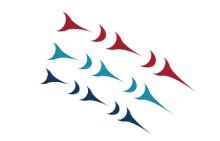Project 57 Week 1:Terminology

There are a lot of terms used when talking about Indigenous peoples, and it’s important to know how people want to be referred to. If you’re unsure, and you have a good relationship with the person you’re talking to, it’s best to ask. Also note that terminology preferences can be different person to person within a community.
Aboriginal or Indigenous?
In 1982 Aboriginal replaced “Indian” as the appropriate term for Indigenous Peoples in Canada (Vowel, 2016 [Métis]; Younging, 2018 [Cree]). In 2016 the federal government adopted Indigenous as the preferred term for all government communications (Joseph, 2018), and this term is gaining recognition in organizations and literature (Younging, 2018).
Indigenous is used collectively to refer to First Nations, Métis, and Inuit peoples in Canada (Joseph, 2018 [Kwakwaka’wakw] ; Younging, 2018), and is not intended to “imply homogeneity of culture or of linguistic representations” (SFU Aboriginal Reconciliation Council, 2017, p. v). It is important to recognize and acknowledge “that Indigenous peoples are diverse, multicultural, and multinational” (SFU Aboriginal Reconciliation Council, 2017, p. v).
Chelsea Vowel cautions against using either Aboriginal or Indigenous in the possessive (2016, p. 8). Meaning, use Indigenous Peoples in Canada and not Indigenous Peoples of Canada or Canada’s Indigenous Peoples.
First Nations
This term replaced the use of Indian or Native in the 1970s (Joseph, 2018 ; Younging, 2018). It “refers to that group of people officially known as Indians under the Indian Act, and does not include Inuit or Métis peoples” (Vowel, 2016, p. 11).
According to Younging, “the term has strong political connotations: it refers to separate nations that occupied territory before the arrival of Europeans” (2018, p. 63). It can be used to refer to a single community within a larger nation, such as Younging’s example of Westbank First Nation, which is part of the Okanagan Nation (2018, p. 63). Except when discussing a particular nation, the term is always plural (Younging, 2018).
There are more than 630 First Nations in Canada, and approximately 200 Nations are in BC.
Inuit
The term refers to the Indigenous people living in the Arctic areas of Canada, Greenland, and Siberia (Joseph, 2018 ; Younging, 2018). The word Inuit is plural and means the people, while Inuk is singular (Joseph, 2018 ; Younging, 2018).
There are 56 Inuit communities in Canada.
Métis
This term is used by many people in Canada, and in a few different contexts (Joseph, 2018 ; Younging, 2018). It often means “an Indigenous People who emerged during the fur trade from the intermarriage of people of European descent and people of Indigenous descent” (Younging, 2018, p. 67). Métis Nation Canada defines Métis as “a person who self-identifies as Métis, is distinct from other Aboriginal peoples, is of historic Métis Nation Ancestry and who is accepted by the Métis Nation.” The Métis Homeland includes: Northwest Territories, Nunavut, Ontario, Manitoba, Saskatchewan, Alberta, and British Columbia (Rupertsland Institute, n.d.).
Identity is complex, and there is a lot of debate around Métis identity and historic Métis communities. For more on the topic, read chapter four in Indigenous Writes (Vowel, 2016).
Non-status
The term used to refer to a First Nations person who is not registered under the Indian Act, and therefore does not have status (Joseph, 2018). This can be a result of losing status or having a parent or grandparent lose status, through either the Indian Act or another piece of legislation (Vowel, 2016).
The Indian Act outlined a process of enfranchisement, where an “Indian” could give up their status to become a Canadian citizen (Joseph, 2018). Once enfranchised, the person could then vote, live off reserve, attend post-secondary school, hire a lawyer, become a doctor, or join the military (Joseph, 2018). If a man became enfranchised, his wife and children were as well (Joseph, 2018). By 1985 enfranchisement was removed from the Indian Act (Joseph, 2018).
The Decolonizing the Library Working Group invites everyone to learn alongside us with Project 57. This project is a response to the TRC Call to Action 57, which calls on "federal, provincial, territorial, and municipal governments to provide education to public servants on the history of Aboriginal peoples."
For more information visit Indigenous Initiatives.

